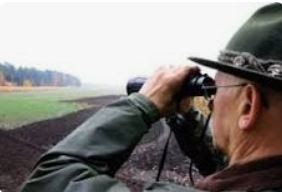A quiet sort of a lockdown day. Lois rings the doctor about her shoulder pains , explaining that she is taking paracetamol in between ibuprofen doses – yikes! But Lois has never got on with paracetamol: it gives her a funny feeling in the head, so the doctor prescribes some codeine tablets, which the pharmacy delivers in the afternoon.
Because of Lois’s shoulder pains, I find myself doing more in the kitchen, which isn't my forte, to put it mildly. Today I learn how to string runner beans – or should I say, I learn how to do the job inexpertly, to be more accurate: still it’s my first attempt! And two deliveries of ready meals come in the course of the day, to give me the occasional day off from meal preparation: the Parsley Box ones that don’t have to be refrigerated, and the posher Cook meals that need to be put in the freezer.
It’s a terrible life subsisting on pre-packaged TV dinners, and we long to be free of this life, that’s for sure. Just like Ranger Anderson, who hit the world’s headlines recently by apparently disappearing off the face of the planet after too many pre-packaged lunches – a terrible warning to us and to all those tempted to follow our example, no doubt about that!
FLAGSTAFF, AZ—Forest Service ranger Lawrence Anderson, missing from his fire-warning post in the Coconino National Forest since mid-July, was found alive and well-off in the manager's office of a Flagstaff Home Depot Sunday.
"We announce with a sense of relief that Larry is safe and financially secure," said FBI agent Donald Grasso. Anderson described his years as a ranger as "an ordeal," recounting how he was sometimes forced to subsist on root beer and pre-packaged bologna-and-cheese sandwiches from the park gift shop for weeks at a time.
An alarming story, but at least it has a happy ending, which gives Lois and me a measure of confidence, which is nice!
16:00 Lynda’s U3A Middle English group’s next monthly meeting is tomorrow on zoom, so I take another look at John Wycliffe’s arguments for translating the Bible into English – he was one of the first people to do this, but it’s amazing to look back at how much opposition there was to this in the Church.
Today, strumpets (i.e. prostitutes) and thieves make their first appearance, a bit to my surprise, and they seem to be “praising Sir Jack”, whoever he was.
“strumpatis and þeuys preisen Sire Iacke…”
Nobody seems quite sure where the word “strumpet” comes from. Some think it’s to do with the stockings they wore – presumably not nylons in those days: the Middle Dutch word for “stockings” was “strumpen”. Others think it’s connected with the verb “to strump”, which meant to stalk somebody, as a prostitute might stalk a customer. So the jury’s still out on that one.
Aren’t the origins of words totally fascinating! Who would want to study anything else!!!!
20:00 We watch TV, the first half of a massive 2-hour long Channel 5 documentary on T.E. Lawrence, or “Lawrence of Arabia” as he’s better known.
Another great, low-budget but impressive documentary from Channel
5: the secret is to assemble a really good group of experts who know their
stuff, and the programme almost makes itself. And don’t get some overpaid
celebrity to swan around doing pieces-to-camera in front of spectacular
landscapes: it just isn’t necessary, as these Channel 5 programmes prove. Simples!!
Lois and I didn’t know that Lawrence had a psychologically disturbed childhood: he had discovered by accident, at the age of 10, that his parents weren’t married, but were keeping this a secret – his father had a wife back in Ireland that was refusing to divorce him. And the young lad escaped his resulting feelings of insecurity by wallowing in books about King Arthur and his knights, and their daring escapades to rescue damsels in distress.
Later as a young army officer in the Middle East he tried to fulfil his Arthurian knightly fantasies by helping the aspiring Arab rebels in their fight against the Ottoman Turks, dressing up in Arab clothes and living the Bedouin life in the desert. However the Arthurian adventure went sadly wrong for Lawrence personally. He made the mistake of promising his Arab friends that Britain would guarantee the independence of any Arab state or states that replaced the Ottoman Empire, if their campaign were successful.
Unfortunately for Lawrence, however, the British and French governments had done a secret deal (the “Sykes-Picot” agreement) to carve up the Middle East, after the war, into a set of new, semi-colonial, British-dominated or French-dominated territories. Lois and I find this quite shocking, the fact that the two powers were acting in a fashion no less imperialist than they had done in the previous century: no wonder that the US, with its anti-imperialist stance, only joined reluctantly with them in the war against Germany on the western front, and were again, after the Treaty of Versailles, reluctant to get involved with the League of Nations and other Anglo-French-inspired ideas – oh dear!
Psychologically this turn of events in the Middle East was devastating for Lawrence, who felt tremendous guilt at having “betrayed” his Arab friends, and this set the stage for the rest of his life back in England. There was the strange paradox that he was called “the most famous man in England” and feted for his dashing wartime crusades, while he personally felt totally crushed and was forced to make vain attempts to avoid media attention. But all that trauma will no doubt form the second half of this documentary, which Lois and I are going to leave for another evening. We're looking forward to it.
22:000 We go to bed – zzzzzzzz!!!!!





No comments:
Post a Comment